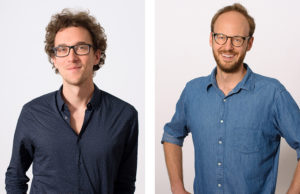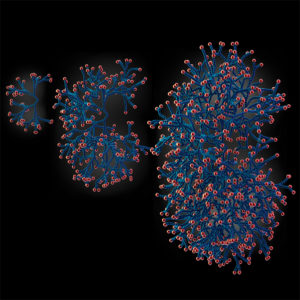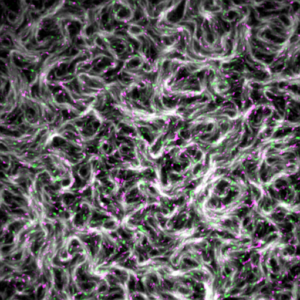November 13, 2019
Two young IST Austria professors selected for scientific excellence
Professors Edouard Hannezo and Martin Loose selected to join EMBO Young Investigator Programme as “some of the best young researchers in the life sciences” (EMBO)
Theoretical biophysicist Edouard Hannezo and biochemist Martin Loose from the Institute of Science and Technology Austria (IST Austria) are among 27 young life scientists selected by the European Molecular Biology Organisation (EMBO) this year to join their Young Investigator Programme. EMBO Young Investigators are researchers under the age of 40 who are within their first four years as group leaders and have a proven record of scientific excellence. They receive financial and practical support for a period of four years.

© IST Austria
Upon their selection, Edouard Hannezo and Martin Loose, who started their careers at IST Austria as group leaders in 2017 and 2015, respectively, join a network of 129 current and 340 former Young Investigators, and will begin their four-year programme tenure in January 2020. Besides financial support, the program provides networking opportunities for the young scientists and their lab members.
Further benefits of the EMBO Young Investigator Programme include training in leadership skills and responsible research practices, and access to core facilities at the European Molecular Biology Laboratory (EMBL) in Heidelberg, Germany. Young Investigators may also seek mentorship from a senior scientist in the community of EMBO Members. They each receive an award of 15,000 euros in the second year of their four years’ tenure, and can apply for further funding and travel grants to attend conferences.
Promising research of the self-organization of biological systems
Hannezo and Loose were selected by EMBO for their outstanding track record and their promising research topics. Cells and organs are complex and dynamic, self-organizing biological systems that emerge from the functional interactions of their components. Both researchers are interested in aspects of this phenomenon of self-organization, yet on different scales—and by applying quite different approaches:
The Hannezo group is studying the physical principles behind the formation of branching organs such as the lung, prostate, kidney or mammary gland. By combining biophysical and systems biology approaches they aim to develop a theoretical framework to predict the dynamics of organ formation. “How is genetic information integrated on the level of molecules, cells and tissues to allow for the shaping and function of organs? This is one of the key outstanding questions of systems biology and biophysics we want to find answers to in the next few years,” says Hannezo. Through collaborations with developmental biology groups, the Hannezo group will apply the developed theories to multiple organs, as well as in neuronal, vascular and lymphatic networks in order to compare and contrast their respective design principles and uncover generic features of branching morphogenesis. Their ongoing research is also supported by an ERC Starting Grant, awarded in 2019.

© IST Austria – Hannezo group
The Loose group uses biochemical methods, fluorescence microscopy and image analysis techniques to understand how proteins self-organize into dynamic patterns. “How do thousands of proteins act together to perform complex functions on the much larger cellular scale? Our goal is not only to understand a particular molecular mechanism, but also to identify the general principles of protein self-organization, which eventually give rise to the living cell,” Loose explains. Instead of looking at complex phenomena in an intact cell, the group rebuilds cellular functions in vitro using purified components. Loose is particularly looking at the mechanism of bacterial cell division and how organelles in eukaryotic cells obtain their biochemical identity. The Loose group currently also receives funding from an ERC Starting Grant awarded in 2015 and an HFSP Young Investigator Grant awarded in 2016.




